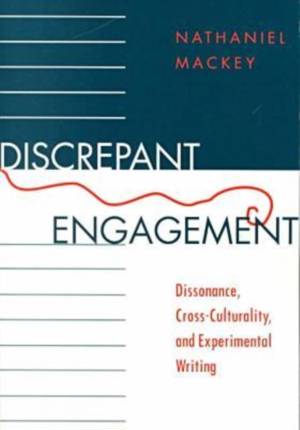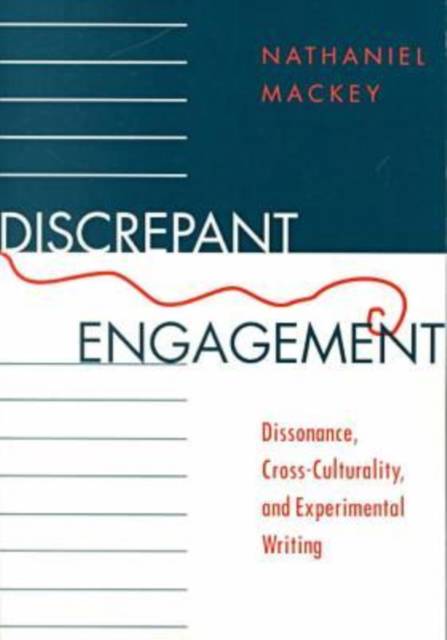
- Retrait gratuit dans votre magasin Club
- 7.000.000 titres dans notre catalogue
- Payer en toute sécurité
- Toujours un magasin près de chez vous
- Retrait gratuit dans votre magasin Club
- 7.000.0000 titres dans notre catalogue
- Payer en toute sécurité
- Toujours un magasin près de chez vous
Description
This highly regarded and frequently referenced work of literary criticism is essential to any study of avant garde poetics.
Nathaniel Mackey addresses the poetry and prose of a number of authors not commonly grouped together: black writers from the United States and the Caribbean and the so-called Black Mountain poets. Although they are seemingly disparate, these writers are united by their experimentation with style and form. Mackey, an important contemporary poet and critic, focuses on the experimental aspects of their work rather than on its subject matter or authorship to show that they all share an implied critique of conventional poetic practices.
Mackey analyzes the work of Black Mountain poets Robert Duncan, Robert Creeley, and Charles Olson, African American poets Amiri Baraka and Clarence Major, and Caribbean writers Edward Kamau Brathwaite and Wilson Harris. He frequently brings the work of these authors into dialogue and juxtaposition, noting the parallels and counterpoint that exist among writers normally separated by ethnic, temporal, or regional boundaries. By insisting that their experimentation unites these writers rather than marginalizes them, Mackey questions traditional notions that underlie conventional perceptions and practice.
In his epilogue and bibliographic essay, volume editor Michael Conniff suggests new directions for further research and offers a comprehensive survey of the evolution of major writings, theories, and methodologies in the field.
Spécifications
Parties prenantes
- Auteur(s) :
- Editeur:
Contenu
- Nombre de pages :
- 214
- Langue:
- Anglais
- Collection :
Caractéristiques
- EAN:
- 9780817310325
- Date de parution :
- 18-02-00
- Format:
- Livre broché
- Format numérique:
- Trade paperback (VS)
- Dimensions :
- 154 mm x 229 mm
- Poids :
- 494 g

Les avis
Nous publions uniquement les avis qui respectent les conditions requises. Consultez nos conditions pour les avis.






